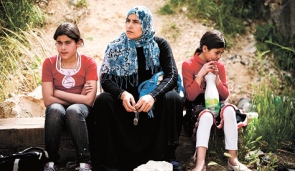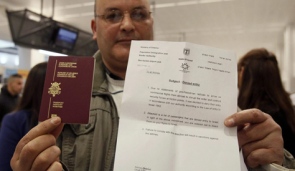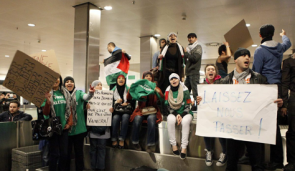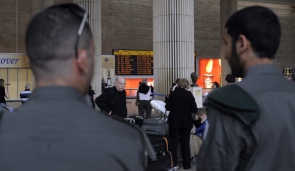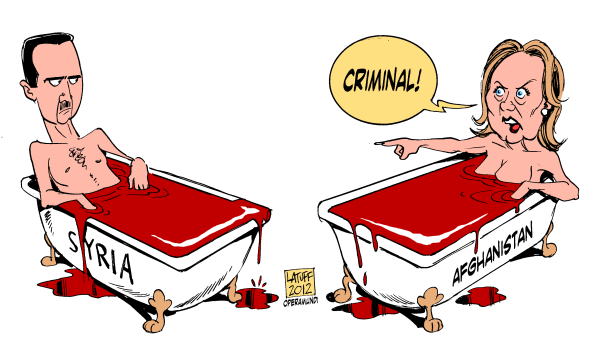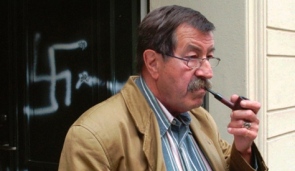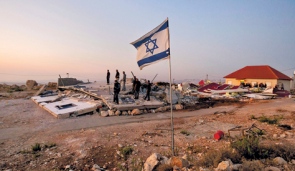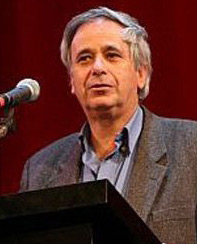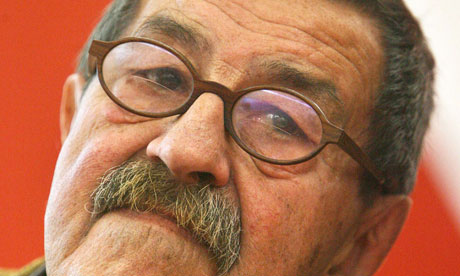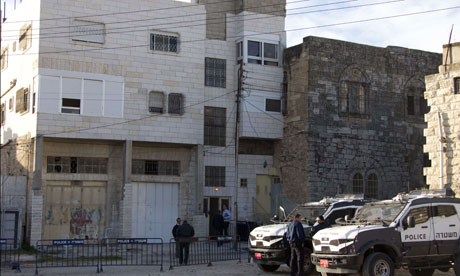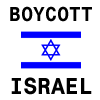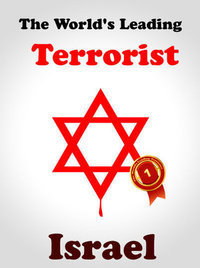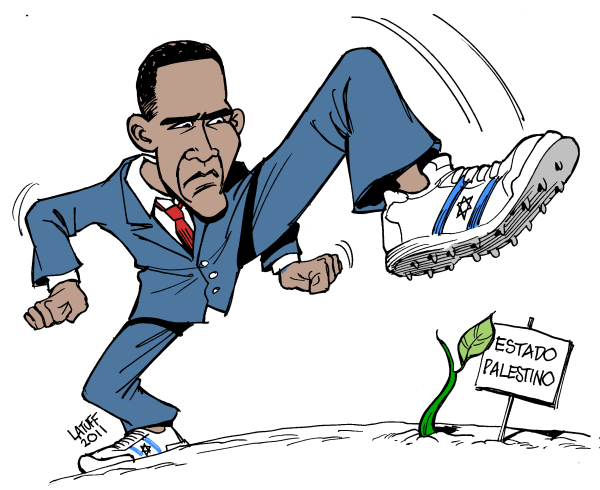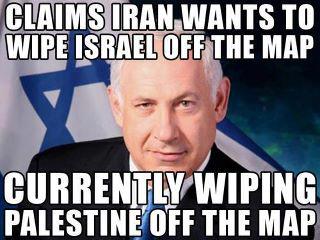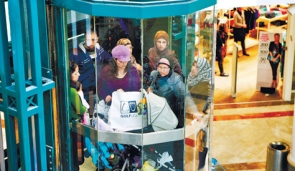EDITOR: Israel loses gas supply from Egypt!
Israeli pundits already called the Egyptian decision ‘financial suicide’, as if Israel is the only client for Egyptian gas, and the bizarre agreement, supplying Israel with gas at a loss to Egypt was a financial miracle…
This is the first substantial result of the Egyptian revolution of last year, and may point the way not just for Egyptian politicians, but also those of other Arab countries. Israel may never enjoy the centre stage again in the Arab world, and the days it could rely on the Arab autocracies may be over. This must have long term effect on the chances of the Palestinian struggle.
In an excellent piece by Akiva Eldar, he calls on Abbas to go for a popular uprising against Israeli occupation. This call is likely to go unheeded – Abbas is an apparachik of the Israeli-American partnership, and will never do what Palestine needs.
Egypt cancels natural gas deal with Israel: Haaretz
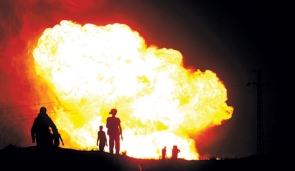
Egypt’s national gas company notifies EMG about cancelation; Israeli, Egyptian officials say move is due to business dispute and has nothing to do with Egypt-Israel diplomatic ties.
By Avi Bar-Eli and Reuters
Egypt’s national gas company EGAS announced Sunday that it will be cancelling its natural gas supply deal with Israel.
Ampal-American Israel Corporation, a partner in the East Mediterranean Gas Company (EMG), which operates the pipeline, said the Egyptian companies involved had notified EMG they were “terminating the gas and purchase agreement.”
The company said in a statement that the Egyptian General Petroleum Corporation and Egyptian Natural Gas Holding Company had notified them of the decision, adding that “EMG considers the termination attempt unlawful and in bad faith, and consequently demanded its withdrawal.”
It said EMG, Ampal, and EMG’s other international shareholders were “considering their options and legal remedies as well as approaching the various governments.”
Sources close to EMG said in response, “Egypt does not understand what it is doing. This move will bring back the country – politically and economically – by 30 years. This is a breach of the peace agreement with Israel.”
Diplomatic officials in Jerusalem, however, said that the cancellation was done as a result of a business dispute.
“In talks between Israeli and Egyptian diplomatic officials, it was made clear that the cancellation of the deal was part of a business dispute between a private company and Egyptian government companies – a dispute that is currently found in legal proceedings abroad,” a diplomatic source said. “This has nothing to do with the diplomatic relations between Israel and Egypt.”
Moreover, Mohamed Shoeb, the head of the Egyptian Natural Gas Holding Company, said the decision to cancel the deal was not political.
“This has nothing to do with anything outside of the commercial relations,” Shoeb told The Associated Press.
He said Israel has not paid for its gas in four months. Foreign Ministry spokesman Yigal Palmor denied that.
Shoeb told Egyptian TV that the decision to cancel the contract was made Thursday because “each side has rights and we are representing our rights.”
Finance Minister Yuval Steinitz’s office responded to the news on Sunday, saying that, the finance minister was “very worried” about the cancellation of the gas deal with Israel, “both in political and in economic terms,” and describing the cancellation as “a dangerous precedent” that threatens ties between Egypt and Israel.
Opposition leader Shaul Mofaz said also responded on Sunday that the cancellation was an unprecedented low point in relations between Egypt and Israel. “This is a blatant violation of the peace treaty,” he said. “This unilateral step requires an immediate American response,” as the U.S. was present at the signing of the Camp David Accords.
A deal was reached in 2005 between the Israeli and Egyptian governments as part of a political agreement according to which Cairo undertook to allocate 7 billion cubic meters (BCM) of Egyptian gas to the Israeli market for 20 years, with an option to double the supply.
Ampal, Israeli businessman Yossi Maimon’s company, controls 12.5% of EMG, which sells Egyptian gas to customers in Israel, primarily the Israel Electric Corporation. It exports the gas by means of a pipeline that runs through Sinai. That pipeline has been attacked more than 14 times since the popular uprising that ousted longtime Egyptian leader Hosni Mubarak.
Before the sabotage, Egypt supplied about 40 percent of Israel’s natural gas, which is the country’s main energy source.
Israeli officials have said the country was at risk of facing summer power outages due to energy shortages.
Companies invested in the Israeli-Egyptian venture have taken a hit from numerous explosions of the cross-border pipeline and are seeking compensation from the Egyptian government of billions of dollars.
Ampal and two other companies have sought $8 billion in damages from Egypt for not safeguarding their investment.
Robert Fisk: Counter-revolution – the next deadly chapter: Independent
ROBERT FISK SATURDAY 21 APRIL 2012
It was my old Jordanian-Palestinian chum Rami Khouri who first spotted what is going on in the Middle East right now: it’s the counter-revolution. Bahrain is crushing dissent. Syria is crushing dissent. Mubarak’s former head of intelligence, the sinister Omar Suleiman, is standing for president in Egypt – the cancellation of his candidacy last week by a dodgy “electoral committee” may well be overturned. Libya is at war with itself. Yemen has got its former dictator’s sidekick back. Sixty-one dead in a battle between soldiers and al-Qa’ida last week – in a single day. All in all, a pretty mess.
But let me quote Khouri. “In Washington-speak, a ‘crisis’ is like love: you can define it any way you want, but you know when it happens to you. So a popular revolt in Bahrain for full civil rights is a crisis that must be crushed by force. But a revolt in Syria is a blessed event that deserves support. Similarly, this peculiar mindset warns against Iranian support to the Houthi rebels in Yemen, while accepting as perfectly logical and legitimate for the US and its allies to send arms and money to their favourite rebel groups around the region – not to mention attacking entire countries…”
And there you have it. As Khouri notes, there’s now a new group called the “Security Cooperation Forum” linking the US with the Gulf Cooperation Council. La Clinton turned up to assure the oil states of Washington’s “rock solid and unwavering commitment” to the GCC. Now where have we heard that before? Why, isn’t that what Obama is always saying to the Israelis? And weren’t Bibi Netanyahu of Israel and King Abdullah of Saudi Arabia the two guys who called Obama to ask him to save Mubarak?
And in Syria – where the Qataris and the Saudis are all too keen to send weapons for the rebels – things are not going very well for the revolution. After claiming for weeks a year ago that “armed bands” were attacking government forces, the bands now exist and are well and truly attacking Assad’s legions. For many tens of thousands who were prepared to demonstrate peacefully – albeit at the cost of their lives – this has become a disaster. Syrian friends of mine call it a “tragedy”. They blame the Gulf states for encouraging the armed uprising. “Our revolution was pure and clean and now it’s a war,” one of them said to me last week. I believe them.
And the violence is creeping ever closer to Lebanon. Last week’s killing of TV cameraman Ali Shabaan has shocked the normally unflappable Lebanese, with even the pro-Syrian Hezbollah condemning his death – like the Hezbollah, of course, Shabaan was a Shia – and citizens of Lebanon have noted that while Syrian troops were on their border, Lebanese troops, at the time of the shooting, were nowhere to be seen. Pro-Syrian MPs in the Lebanese parliament have even blamed their own security authorities for Shabaan’s death.
I suppose it’s a rueful observation to make, but some of the early revolutions in the Arab world did not exactly go according to plan. A few days ago, the Algerians celebrated the 50th anniversary of their victory over the French. French television showed major documentaries on the fearful struggle which cost the lives of at least half a million people, films which could be seen in Algeria. But what have the Arabs got for their titanic battles? A pseudo-dictator and a corrupt elite, a shameful unemployment figure and enough oil to make Algeria rival Saudi Arabia – if the revolution had worked, that is.
Nasser’s revolution wasn’t exactly a roaring success – maybe Nasser was in personal terms, but he and his successors were awful, running Egypt as if it was their personal property, taking Egypt into two bloody wars against Israel. Now there are signs that Iraq may be helping Syrian rebels – just as it did under Saddam’s rule, when he and President Bashar al-Assad’s father Hafez loathed each other. And now Sunni militants inside Iraq have declared war on Iran – now that there are no more Americans to attack.
If this seems a pessimistic horizon, then so be it. I suspect that the Arab Awakening will still be going on after we’ve all died of old age. But eventually, I think, there will be real freedoms in the Middle East, yes, and dignity for all its peoples, and an astonishment among the next generation that their fathers and grandfathers tolerated dictators for so long. And they will ask what happened to missing fathers and grandfathers.
I say this because a brave group of women gather every day in Beirut to remember their loved ones – all men, Lebanese and Palestinian – who were taken from their homes or from the street during the long years of Syrian rule in Lebanon. Many who made the dismal journey to Damascus were offered false hope by middlemen wanting bribes but have kept their faith intact. The Lebanese daily L’Orient-Le Jour carries a weekly column on each missing man.
Samia Abdullah is waiting for her brother Imad, a 20-year-old Fatah fighter who disappeared in 1984. Fatme Zayat wants her sons back; they have been missing for 27 years. Afife Abdullah is looking for seven members of her family. Adele Said el-Hajj waits for her son, Ali, who was arrested by the Syrians in 1989. That’s 23 years. The Lebanese civil war ended in 1990. Thousands are still missing. Last month marked the 37th anniversary of its beginning. Some Lebanese at the time even claimed it was a revolution.
The Israeli government’s badge of shame: Haaretz Editorial
If Netanyahu feels he lacks the political power to obey the High Court’s directives he must dissolve the government and demand an electoral mandate for its peace and settlement policies.
The behavior of Prime Minister Benjamin Netanyahu and most of his ministers with regard to Beit El’s Givat Ha’ulpana neighborhood recalls that of a career criminal who is undaunted by condemnation or punishment.
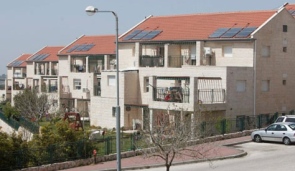
Despite the harsh response from the High Court of Justice, led by Supreme Court President Asher Grunis, to the government’s request to postpone yet again the evacuation of the Migron outpost, Netanyahu has told Attorney General Yehuda Weinstein to “find a solution” that would allow the state to violate its promise to the court to demolish Givat Ha’ulpana’s buildings by the end of the month.
As with the recent case of the so-called Machpelah House in Hebron, which settlers moved into without the necessary permits, our elected officials are competing with each other in attacking Defense Minister Ehud Barak, who dares to try to meet the state’s commitment to the nation’s highest court.
A year ago Netanyahu himself signed off on the state’s promise to evacuate the dozens of families living in Givat Ha’ulpana and demolish their homes. He now says the court order is “a decree the public cannot tolerate.” The prime minister should now explain to the Palestinian public how it is supposed to tolerate the theft of its land and to the Israeli public how it is supposed to tolerate the repeated lawbreaking in the territories for as long as it serves the interests of the settlers.
The size of Givat Ha’ulpana and the duration of its residents’ use of the private Palestinian land on which it was built, with state support, are not mitigating circumstances but rather a badge of shame for the rule of law. The government’s repeated postponements of its legal, moral and international obligations to evacuate the illegal outposts – particularly those built on privately owned Palestinian land – is no substitute for good policy.
If Netanyahu feels he lacks the political power to obey the High Court’s directives he must dissolve the government and demand an electoral mandate for its peace and settlement policies. One can only hope that the public will shake off its apathy and cry out against stealing land from the helpless, breaking the law and spitting in the face of the justice system.
Time for Abbas to take to the streets: Haaretz
If our founding generation had waited in the offices of the ‘Israeli Authority’ until the British would graciously agree to leave, we would not be celebrating 64 years of independence.
By Akiva Eldar
The crisis over Beit El’s Ulpana Hill neighborhood and Lt. Col. Shalom Eisner’s attack on a Danish protester have something in common. Both controversies reveal the Israeli government’s weak spot. Both demonstrate that the Jewish mind has not succeeded in inventing a magic glue that can fuse occupation and settlements to human rights and democracy.
The settlers know how to steal the lands of Palestinian farmers. But the mighty who lord it over the weak are helpless against “settlement detectives” like Dror Etkes (formerly of Peace Now ) and Hagit Ofran (currently of Peace Now ), who reveal the crimes of the settlers, their military partners and their political admirers. A state whose legal system would validate the wrongdoing at Beit El and aid in purifying Migron cannot call itself a democratic, law-abiding country.
They say the Israel Air Force can carry out a pinpoint strike against Iran’s nuclear facilities, yet the Israel Defense Forces loses its cool when confronted by a small group of bicyclists armed solely with cameras. The Shin Bet security service knows how to locate terrorists and assassinate them, but has no clue how to cope with nonviolent civil disobedience.
During the first intifada, one man who preached nonviolent resistance to the occupation drove the Israeli government crazy. That man, Dr. Mubarak Awad, condemned violence and organized tax strikes, demonstrations and tree-plantings on land the settlers had stolen from Palestinians. Then-Prime Minister Yitzhak Shamir, Defense Minister Yitzhak Rabin and Foreign Minister Shimon Peres decided to deport Awad on grounds that he was a provocateur. The Awad case reached the White House and put the occupation in the headlines worldwide.
At the height of the Arab Spring, Awad spoke to me by phone from his office at American University in Washington, where he gives workshops on nonviolence. He said the right way to end the occupation would be a nonviolent civil revolt by the Palestinians that would make Israelis’ lives so difficult that they would demand their government reach a peace settlement. “The key to change is in the hands of the oppressed, not in the hands of the oppressor,” said the exiled psychologist.
The Israeli government has so far been lucky that the government of the oppressed in Ramallah, rather than press for change, has preferred to maintain grand homes, new cars and positions that help their family businesses.
The chairman of the Palestinian Authority, Mahmoud Abbas, who calls himself “president,” runs hither and yon in his suit and tie, expecting the world to do his dirty work for him. He comes home with a sackful of promises, and perhaps some donations (on a good day ), until the next takeoff, or the next whiny interview with a local newspaper.
In September he’ll go back to the United Nations. Oh, sorry, I meant December. U.S. President Barack Obama swore to him that if he would agree to postpone his request to the United Nations to recognize Palestine until after the American elections, during his next term in the White House everything would be different.
Meanwhile, Abbas flies to Cairo to advance the reconciliation with Hamas and set up a unity government – if not today, then for sure tomorrow. He also sent Saeb Erekat to Jerusalem with a belligerent letter for Prime Minister Benjamin Netanyahu. In the picture distributed by the Government Press Office, we could see exactly how distressed Netanyahu was by the Palestinian threat to return to the United Nations. Another letter like that and Meretz will surely take over the government.
Eisner was removed from his post because there was no choice, and Ulpana Hill may yet be vacated, but Palestinian laborers will continue to ask the Civil Administration for permits to build the settlements. The Israelis say to themselves, perhaps justifiably, that if the Palestinians had it so bad they would turn Manara Square in Ramallah into Tahrir Square. We’ve seen that Arabs know how to fight for their rights. If Abbas was really so fed up he would replace his tie with a kaffiyeh and lead the masses in a protest march.
The Oslo Accords have turned the Palestine Liberation Organization into the mechanism for maintaining the Israeli occupation. It’s about time the Oslo generation of Palestinians admits the failure of the diplomatic option, hangs up its suits, weans itself from the pathetic honor it has accorded itself, and takes to the streets.
If our founding generation had waited in the offices of the “Israeli Authority” until the British would graciously agree to leave, we would not be celebrating 64 years of independence.

